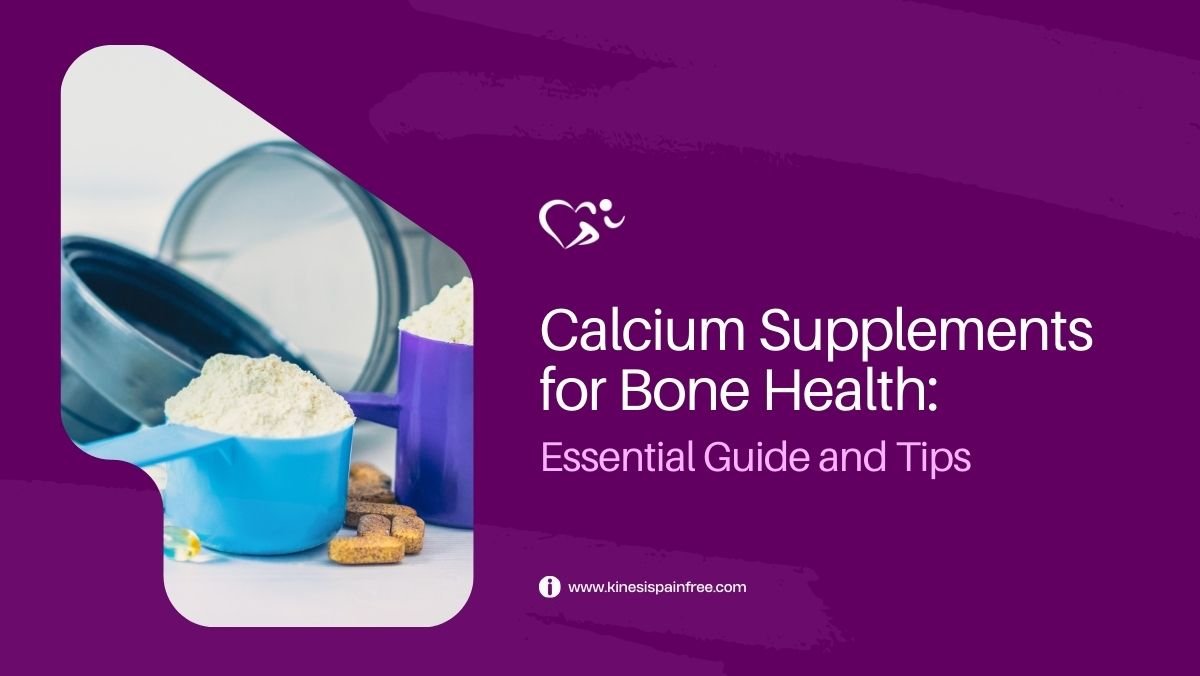When discussing calcium supplements for bone health, it’s essential to understand their role in maintaining strong bones. Many people consider these supplements to enhance bone strength, but is this always necessary? Knowing your calcium needs and the most effective ways to meet them is crucial for your overall health and well-being.

Understanding Calcium Requirements for bone health
Calcium is a vital mineral for maintaining bone density and overall health. The recommended daily intake for adults is approximately 1000 mg. However, certain groups may require more calcium. Pregnant women, postmenopausal women, and elderly individuals often have higher calcium needs due to various physiological changes.
For example, pregnant women need extra calcium to support the developing fetus, while postmenopausal women experience a decrease in bone density due to lower estrogen levels. Elderly individuals may also need additional calcium to prevent bone loss. In such cases, calcium supplements for bone health might be necessary to meet these increased requirements.
The Role of Diet vs. Supplements
In an ideal world, meeting your calcium needs through dietary sources is preferable. Foods rich in calcium, such as milk, yogurt, cheese, almonds, broccoli, and spinach, provide not only calcium but also other essential nutrients that support bone health.
However, it’s not always possible to get enough calcium through diet alone. For individuals who struggle to consume adequate amounts of calcium-rich foods, calcium supplements for bone health can be a valuable addition to their routine. These supplements come in various forms, including tablets, capsules, and powders, and can help fill the gap when dietary intake is insufficient.
How to Use Calcium Supplements Effectively
If you decide to incorporate calcium supplements for bone health into your regimen, it’s essential to use them correctly. Typically, supplements should be taken for 3-4 months to assess their effectiveness. It’s also important to follow the recommended dosage and not exceed the daily limits, as excessive calcium intake can lead to potential side effects such as digestive issues or kidney stones.
Moreover, calcium supplements are best absorbed when taken with food. They should be combined with vitamin D, which enhances calcium absorption in the body. Many supplements include vitamin D, but if yours doesn’t, you might need to take it separately.
Potential Risks and Side Effects
While calcium supplements for bone health can be beneficial, over-reliance on them without a balanced diet can pose risks. Excessive calcium from supplements may lead to complications such as:
• Digestive Problems: Constipation, bloating, and gas are common side effects.
• Kidney Stones: High calcium intake can increase the risk of kidney stones.
• Impaired Absorption of Other Nutrients: Excessive calcium may interfere with the absorption of other essential minerals, like iron and magnesium.
To minimize these risks, it’s crucial to balance your supplement intake with a diet rich in calcium and other nutrients. Regular check-ups with your healthcare provider can help monitor your calcium levels and adjust your supplement intake as needed.
Consulting with a Healthcare Provider
Before starting any new supplement regimen, including calcium supplements for bone health, it’s essential to consult with a healthcare provider. They can provide personalized recommendations based on your specific health needs and ensure that you’re not exceeding safe dosage levels.
In addition to taking supplements, maintaining a healthy lifestyle is key. This includes eating a balanced diet, engaging in regular weight-bearing exercise, and keeping up with routine medical check-ups. These practices contribute to overall bone health and can complement the benefits of calcium supplements.
Conclusion
Understanding the role of calcium supplements for bone health and using them appropriately can significantly impact your bone strength and overall health. By combining supplements with a nutrient-rich diet and professional medical advice, you can support your bone health effectively. Stay proactive about your health and make informed choices to maintain strong, healthy bones. Contact Kinesis Check out our instagram page for more articles.



